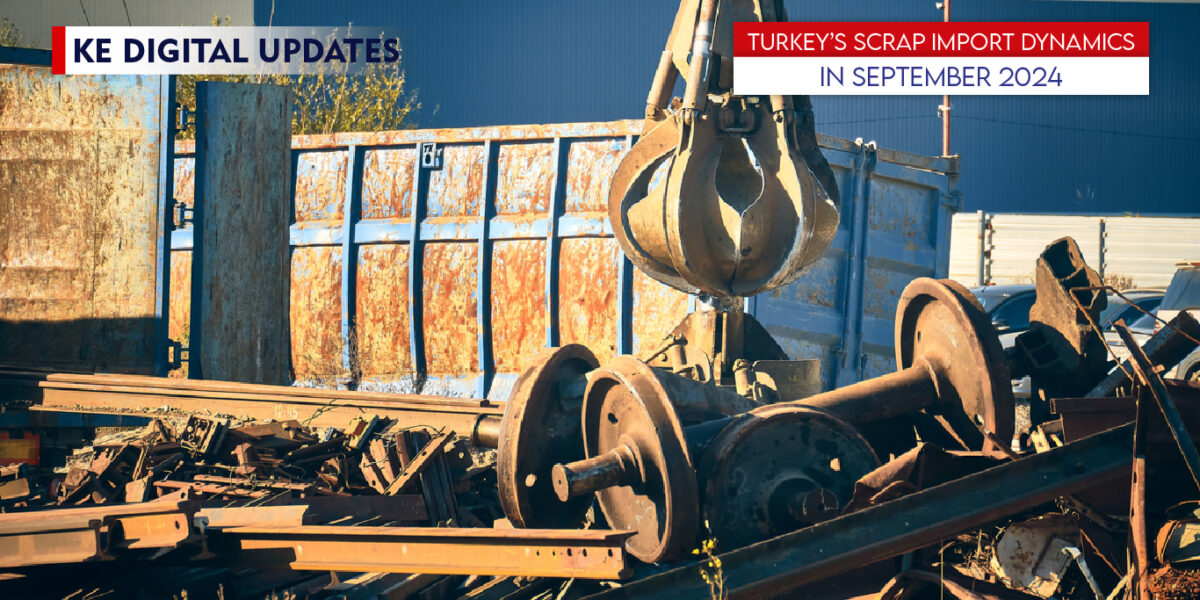Published on Nov 07, 2024
In September 2024, Turkey’s steel industry experienced a notable shift in scrap import patterns. Turkish steel companies imported 1.44 million tons of steel scrap, marking a significant 26.8% decrease from the previous month. Despite this month-over-month decline, the import volume represented a 34.8% increase compared to September 2023.
Financial Implications
The financial aspect of these imports also saw considerable changes. The value of steel scrap imports in September 2024 was $591.78 million. While reflecting a 26.7% decrease from the previous month, this figure showed a robust 49.7% increase year-over-year. This indicates a complex interplay between the volume of imports and the fluctuating prices of steel scrap in the global market.
Year-to-Date Performance
From January to September 2024, Turkey’s scrap imports totaled 14.96 million tons, which is a 6.3% increase compared to the same period in the previous year. The cost of these imports rose by 8.9%, reaching $6.3 billion. This upward trend in volume and value underscores Turkey’s growing demand for steel scrap, driven by various economic and industrial factors.
Key Suppliers
Turkey’s primary steel scrap suppliers in September 2024 were the United States, the Netherlands, the United Kingdom, Belgium, and Venezuela. These countries significantly increased their supply compared to the previous year, highlighting their crucial role in meeting Turkey’s scrap demand.
Historical Context
In 2023, Turkey reduced its scrap imports by 10% due to the low utilization rates of domestic steel mills. This reduction was part of a broader strategy to balance domestic production capabilities with import needs, ensuring the sustainability of the steel industry in the face of fluctuating global market conditions.
Conclusion:
Turkey’s scrap import data for September 2024 reveals a dynamic and evolving landscape. The month-over-month decrease contrasts with the year-over-year increase, reflecting the complexities of the global steel market. The financial figures further illustrate the impact of price variations on import values. As Turkey continues to navigate these challenges, the role of key suppliers and the strategic adjustments in import volumes will remain critical factors in shaping the future of its steel industry.


